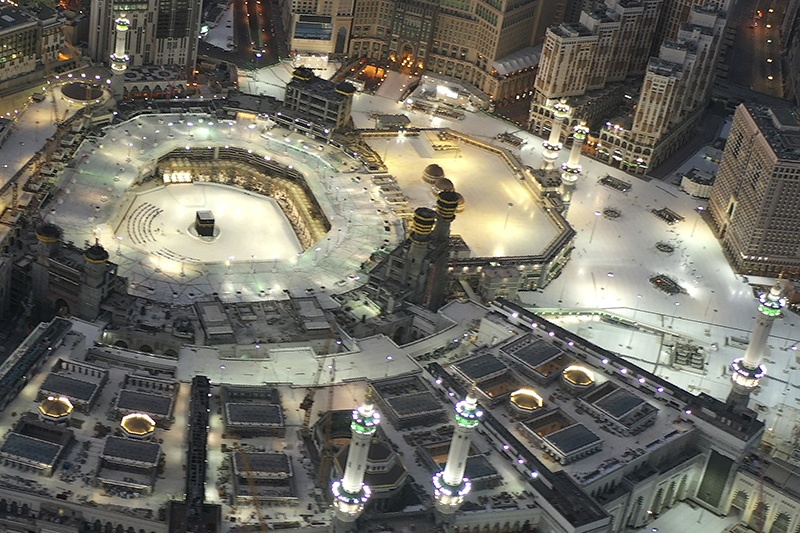Dubai to allow free movement, business activity

CAIRO: Saudi Arabia will begin easing restrictions on movement and travel this week, more than two months after stringent measures were introduced to help curb the spread of the novel coronavirus. Restrictions will be lifted in three phases, culminating in the curfew completely ending - with the exception of the holy city of Makkah – from June 21, the state news agency reported in a statement early yesterday.
The hajj and umrah pilgrimages – which attract millions of travelers from around the world – will remain suspended until further notice. The kingdom has so far recorded 74,795 cases of COVID-19 with 399 deaths. More than 2,000 cases are still being reported daily. The first phase, starting on Thursday, will see the 24-hour curfew reduced to between 3 pm-6 am countrywide. Free movement between regions and some retail and wholesale activities, including malls, will be allowed to resume.
Saudi Arabia had imposed 24-hour curfews on most towns and cities but eased them for the start of the fasting month of Ramadan. The 24-hour curfew was reimposed during the five-day Muslim Eid al-Fitr holiday, which began on Sunday. From Sunday May 30, free movement will be allowed between 6 am and 8 pm, Saudi Press Agency reported. Domestic flights will be allowed to resume, but a ban on international flights will stay.
Mosques can hold prayers once again, subject to social distancing and hygiene measures, except for in Makkah where restrictions on attendance will stay in place. Public and private sector employees will be allowed to return to their offices. Social gatherings of more than 50 people will still be banned, including weddings and funerals. Citizens will still be urged to wear masks in public and continue hygiene and social distancing measures after June 21.
Makkah will stay one phase behind the rest of the country, with curfew times adjusted to 3 pm-6 am until June 20, revised up to 8 pm thereafter. Prayers will only be allowed to resume in mosques from June 21.
Meanwhile, Dubai will begin allowing free movement and business activity to restart from Wednesday, Crown Prince Sheikh Hamdan bin Mohammed said on Monday. Starting Wednesday there will be no restrictions on movement or business operations between 6.00 am and 11.00 pm, the Dubai Media office said in a press release. Some retail and wholesale businesses will be allowed to reopen subject to further sterilization operations and social distancing measures, the media office said on Twitter.
This will include cinemas, indoor gyms and education and treatment centres for children among others. Business and tourism hub Dubai allowed malls to reopen at limited capacity during the Muslim holy month of Ramadan that began on April 24. Dubai has also allowed dine-in restaurants and cafes to resume business at 30 percent capacity and public parks to reopen with restrictions.
Monday's announcement reverses a measure taken last week by the UAE to extend its nationwide curfew by two hours after reporting an increase in daily cases of the coronavirus. The UAE reported 822 new cases on Monday taking the cumulative total to 30,307, with 248 deaths. Monday's statement added that Dubai's airport will also begin to receive returning residents and travellers in transit as of Wednesday.
The UAE, which had suspended entry of non-Emirati residents on March 19, said last week it would soon start allowing in those with valid residencies stranded abroad whose families are in the UAE. The state news agency said residents with relatives in the UAE could start returning as of June 1 to reunite with family. The country halted regular passenger flights and closed most public venues to combat the disease, but like other Gulf Arab states it saw the virus spread among low-income migrant workers living in overcrowded quarters, leading it to increase testing. – Reuters
.jpg)
